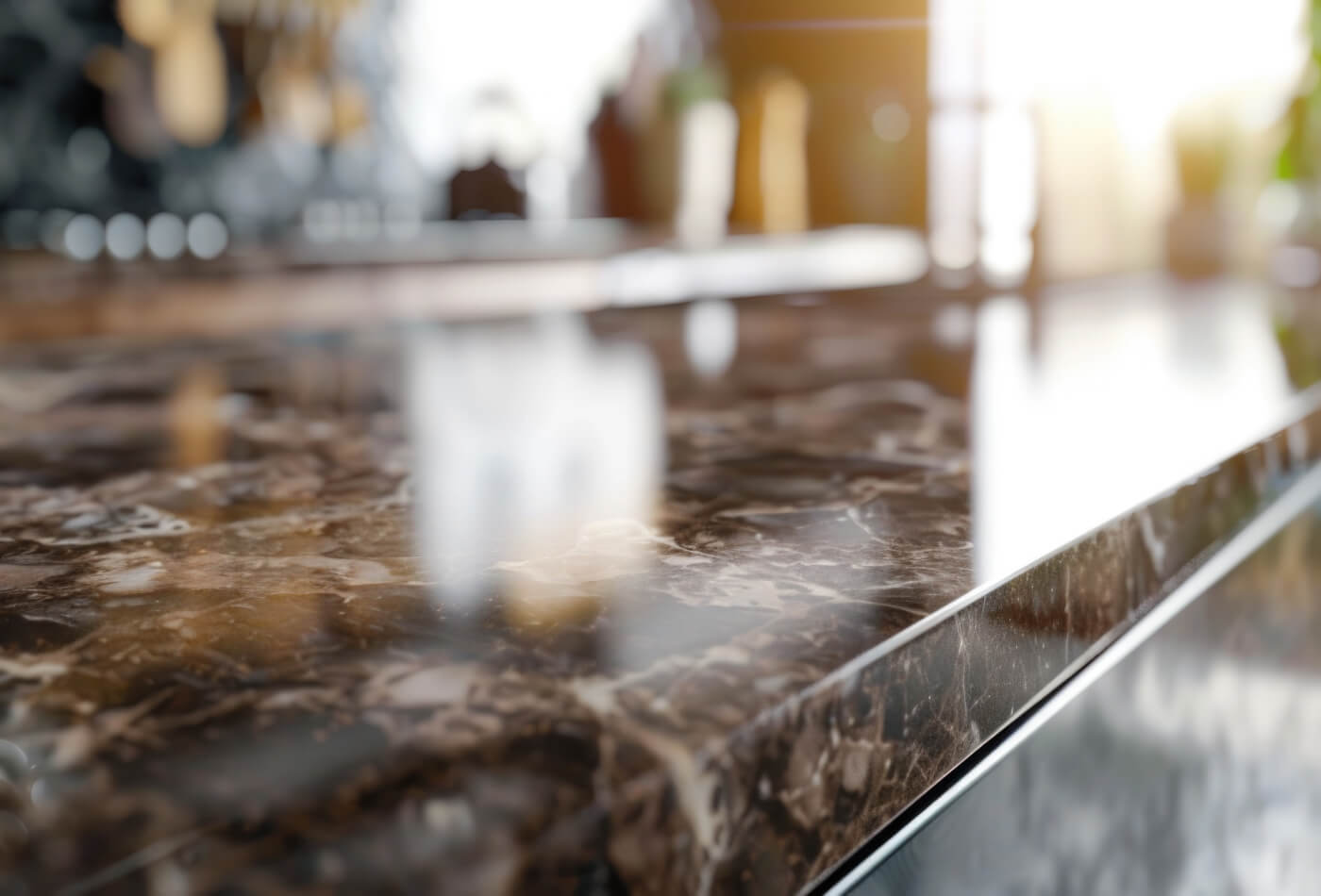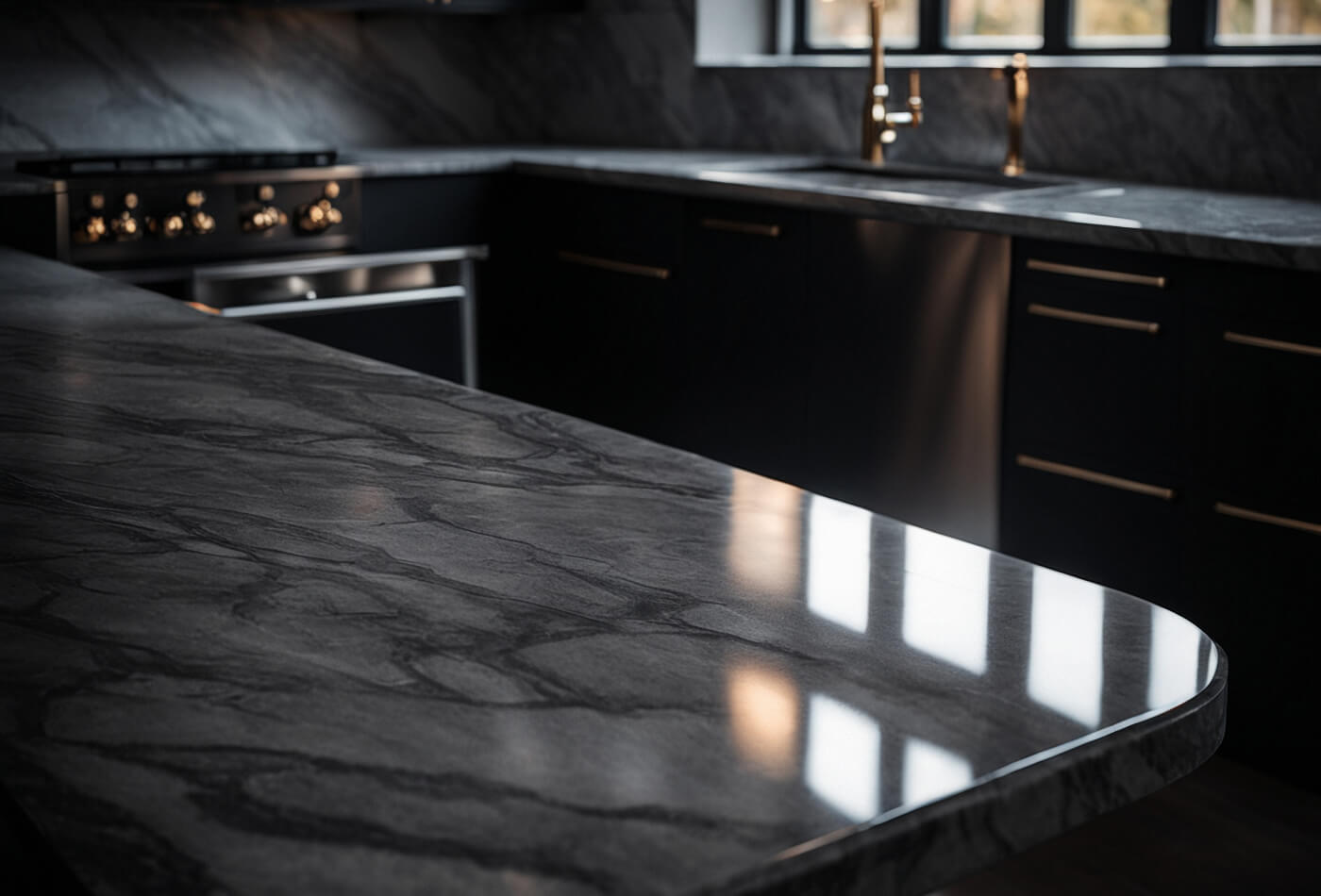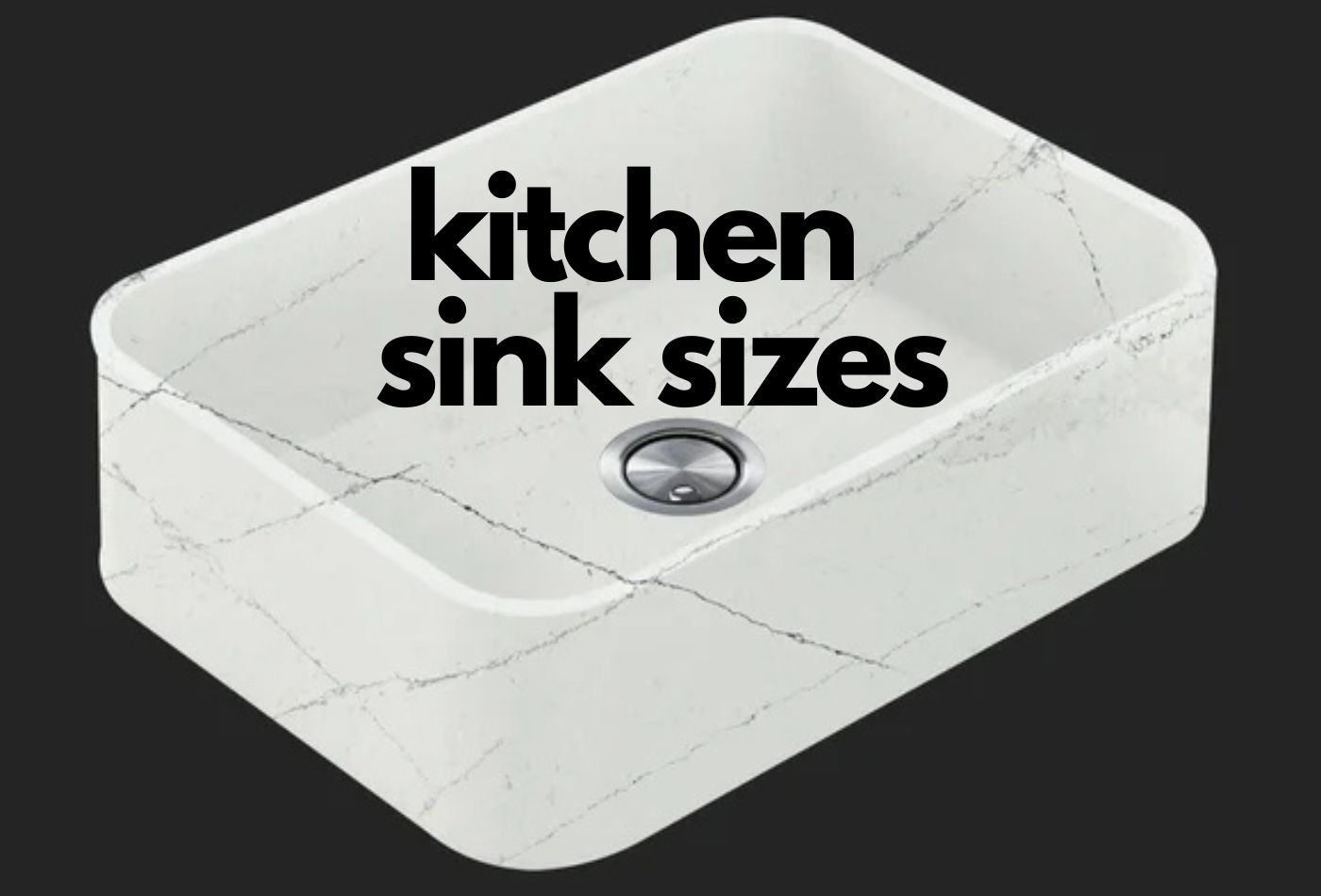Table of Contents
- Introduction:
- What Is Worktop Oil?
- Why Do Stone Surfaces Need Worktop Oil?
- Types of Stone Worktops: Uses, Pros, and Cons
- How to Use Worktop Oil: Steps to Apply
- Difference Between Dry and Cured Worktop Oil:
- Can I Apply Varnish Over Linseed Oil?
- Can I Varnish Over Danish Oil?
- Best Oil Types to Seal Worktops: Pros and Cons
- Is Oil Better Than Varnish for Stone Worktops?
- Summary:
Introduction:
Worktop oil is the best way to go if you want your kitchen or bathroom surfaces to stand out for a long time. It is invaluable for maintaining a shiny look, especially for stony flooring such as Marble, Granite, or Quartz. This oil keeps these beautiful stones safe from regular usage and, at the same time, enhances their appearance. Also, it creates a barrier for stains and moisture, which are very important in using areas like the kitchen. But don’t worry; Worktops is ready to help you choose the right oil for your stone settings and provide useful information to maintain your stone top.
What Is Worktop Oil?

Worktop oil is a unique product manufactured for use in the kitchen or bathroom, for instance, in stone worktops such as Granite and Marble. It is a great choice for anyone who desires their countertops to look clean, attractive, and last longer without getting damaged. The oil rises to the outside surface of the fabric and forms a layer to shield the fabric from staining, fading, and normal use and tear. Worktop oil makes your international stone worktops beautiful, from the kitchen to cleaning spills and everything in between.
Why Do Stone Surfaces Need Worktop Oil?
In the case of materials such as Granite and Quartz worktop, the application of worktop oil brings liveliness to the look of the stone. It preserves the texture and the shade of the surface and, at the same time, shields it from the regular stains. Also, the oil assists in stopping the stone from absorbing the liquids, which makes it either discolour or crack up in the long run. Do not forget to apply these products frequently to keep the stone worktops stain-resistant and stunning.
Types of Stone Worktops: Uses, Pros, and Cons

Stone worktops are popular for their durability and aesthetic appeal, with different types providing unique benefits. Here are a few types of stone you might consider:
1. Granite Worktops
Uses: Granite worktops are ideal for both kitchens and bathrooms due to its scratch-resistant surface and heat tolerance.
Pros: It is extremely durable and simple to maintain, and the designs provide that sharp and elegant look.
Cons: It may be relatively expensive, and if not well polished, it may be stained.
2. Marble Worktops
Uses: Marble worktops are perfect for people who are preparing to spend a lot of money on their kitchens or bathrooms and want something shining and beautiful.
Pros: It looks attractive and has distinctive contours; it is ideal for explaining because its surface is cool to the touch.
Cons: Compared to Granite, it is slightly more permeable, and therefore, a good sealer is needed to seal the surface.
3. Quartz Worktops
Uses: Quartz worktops are often used in high-traffic areas due to its engineered durability design.
Pros: They are nonporous, the fabric requires less maintenance, and it is available in different colours and patterns.
Cons: It can be higher cost than other choices, and while durable, it is not as heat-resistant as Granite.
TITANIUM GOLD GRANITE

£380.60
Titanium Gold Granite has a striking dark background with swirls of white and quartz crystals among the randomly distributed fine grains of silver and gold sparkles of mica. Titanium-gold granite Titanium Giallo Granite is one of the other names given… read more
EMPERADOR MARRON MARBLE

£312.65
Emperador Marron Marble lives up to its name thanks to the mix of its dominant dark tone alternating capriciously with seams in a light colour. The aesthetic qualities of this marble makes this one of the most searched materials known.… read more
NERO ANTHRACITE SATIN QUARTZITE

£503.00
Nero Anthracite Satin Quartzite has a dark grey surface background that tends towards black. It features a subtly veined effect that can be visible only upon close observation. This stone goes well with any colour cabinets and can be used… read more
How to Use Worktop Oil: Steps to Apply
Stay tuned with us. Applying oil should not be challenging as most people have deemed it easy to perform. Right? However, there are some important factors that you need to know to make sure that your stone worktops are protected for a longer duration of time. Here’s a simple guide to follow:
Step 1: Clean the Surface
Wipe the worktop and apply the oil after you are sure the surface is not damp. Dust reacts with the oil and other residues on the seed and can hinder the correct oil absorption.
Step 2: Apply the Oil
Rub a thin coat of oil on the worktop gently with a clean cloth or a soft bristle brush. The oil can penetrate again, and you get the best result possible.
Step 3: Let It Soak
Preferably, give the oil some time to settle on the skin's surface before wiping off the remaining oil residue. This helps the oil seep into the stone's surface to greater depths.
Step 4: Buff and Shine
When the oil has settled, you can use a soft fabric to apply slight pressure, swirl the surface to seal it, and finally give it a glossy sheen.
Difference Between Dry and Cured Worktop Oil:
Worktop oils can be either dry or cured, and the individual who will use them must be able to distinguish the two to get the ideal outcome that the stone surface has.
1. Dry Worktop Oil
How It Works: Dry oils, like linseed oil, absorb quickly into the surface but take longer to cure fully.
Benefits: It is convenient to apply and provides your granite worktops with a natural dull sheen appearance.
Downside: While the oil soaks in fast, it can be more prone to wear off quickly if not reapplied regularly.
2. Cured Worktop Oil
How It Works: Cured oils like Danish oil dry to a tougher finish, offering better long-term security for your surfaces.
Benefits: The inner layer cures to form a denser surface that can effectively compare stains and scratches in stone worktops.
Downside: It takes longer to cure fully, so you must allow more drying time before using the surface.
Can I Apply Varnish Over Linseed Oil?
It is, however, important to know that varnish and oil do not go hand in hand regarding worktops like Granite and Quartz. Linseed oil makes the surface sticky, and more so, the varnish cannot affect the surface in the right manner.
Why It’s Not Recommended?
Do not mix with linseed oil: Varnish may lift or have poor inter-coat adhesion as well.
Solution:
Rather than varnish, use worktop oil, which is intended for such goods, or a stone surface sealer to keep things looking as clean as possible.
Can I Varnish Over Danish Oil?
When using linseed oil, varnishing over danish oil is not recommended for such stone worktops as Granite or Marble. Also explore heat resistant worktops to grasp some ideas about worktops.
Why It’s Not Recommended?
Danish oil cures to a strong finish, but the varnish will not stick, so the try applies only in some areas and is not smooth.
Solution:
In this case, it will be advisable to use only oils and sealants suitable for stones. This will help retain its appearance without the threat of peeling or even flaking the stone.
NERO MISTRAL QUARTZ

£338.54
Nero Mistral Quartz is an eye-catching interior design slab that features a black base with busy white veins. It is given a dazzling finish that makes a perfect addition in both residential and commercial settings. It is a dream come… read more
VERDE GUATEMALA MARBLE

£241.32
£329.78
Verde Guatamala Marble displays an attractive green background which features a highly veined pattern. The veins are irregularly sized, some being thin and others moderately thick and are randomly connected such that they give an intricate webbed feel upon closer… read more
GOLD MARINACE GRANITE

£444.10
Gold Marinace Granite is a multicolour, coarse grained natural stone that has a gorgeous blend of olive green, brown, beige, grey and black. Granite is a natural stone which adds charm and elegance to any living space. Granites are formed… read more
Best Oil Types to Seal Worktops: Pros and Cons
You can use many types of oils to seal your worktops, and each has pros and cons depending on your needs and the type of stone. Here’s a breakdown:
1. Linseed Oil
Pros: It is easy to apply, natural, and provides a rich finish.
Cons: It requires regular reapplication and may not be as durable as other oils for high-use surfaces.
2. Danish Oil
Pros: It gives a smooth, glossy finish, highlighting the stone’s natural patterns. Provides a durable layer of protection.
Cons: It takes a long time to cure and may need more maintenance than other oils.
3. Tung Oil
Pros: It is extremely durable and water-resistant, perfect for kitchens and bathrooms.
Cons: It is more expensive and harder to find in stores.
Is Oil Better Than Varnish for Stone Worktops?

When it comes right down to it, it is really hard to decide whether one should use oil or varnish for stone worktops such as Granite or Marble.
1. Why Oil is Better?
Oils seep into the stone and highlight the colour and grain of the stone, while varnish can make it all look somewhat fake.
Stone must be allowed to breathe to prevent the coating from accumulating condensation, which is why oils permit this but offer a barrier.
As compared to varnish, oils are relatively simpler to apply and reapply; hence, they are better suited for areas where they are frequently used.
2. When Varnish May Be Suitable?
If you are in for a very highly polished look or a look akin to painting, then it might well be that varnish would be a better choice to go with; at the same time, do not utilise this for stone because it is a porous material.
Summary:
Protecting your stone worktop literature like Granite, Marble, or Quartz demands proper care; this way, worktop oil is one of the best products you can use. While using linseed, danish, or tung oil, one is bestowed with certain features that are decorative and functional for surface beautification and protection. As for sealants, you might think that varnish is good, but oils are usually the best way to preserve the look of the stone. In one way or another, caring for the worktops is very crucial regardless of the oil applied on the surface. At Work-tops, we are always here to help you which products to choose or how to maintain that great look on your surfaces. Contact us now at +44 0330 113 5868 or mail to info@work-tops.com!
P.s. The readers, for your kind information, that none of the content available on any of the Work-tops pages should be taken as legal advice only, and Work-tops will not be held accountable for using the information presented in or linked from these web pages.




